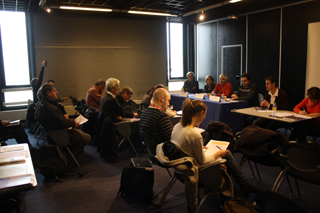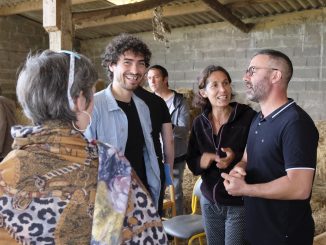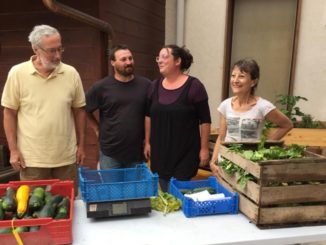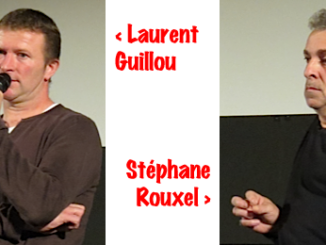At the Salon International de l’Agriculture, taking place in Paris this week, civil society representatives met with EU Agriculture Commissioner Dacian Cioloş. During a one-hour dialogue, they presented their key messages and reactions to the legislative proposals for CAP reform.

Pascal Erard from Concord and Jacques Berthelot from the FoodSovCap movement, raised the need of Policy Coherence for Development and the WTO issues. They highlighted the EU committment to phase out export subsidies after 2013 and the fact that EU should respect the right of developing countries to have their food sovereignty. Erard stated that the CAP should contain obligations to monitor the impacts of the CAP on food security and agriculture in these countries. Cioloş responded that focusing on the EU responsibility of the EU alone is not sufficient: developing countries also have responsibilities in terms of food security.
Marc Dufumier, agronomic expert of Fondation Nicolas Hulot, questioned the lack of reference to protein dependency in the legal proposals and asked the Commissionner to include targeted payments to improve leguminous plant cultivation. Aware of this issue, Cioloş said that he expected specific proposals from DG Agri to be devloped on this area soon.
Christian Roqueirol, farmer representative of ECVC, stated that given their economic and social importance in the EU-27, the small farm scheme went in the right direction but needed to be improved regarding the low level of support proposed by the EC. Cioloş responded that this proposal is still not supported by all the Member States and the most important element is to defend a mandatory small-farmers scheme across the EU-27.

WWF ‘welcomes the 30% greening component in direct payments ceiling’ said its representative Arnaud Gauffier, ‘but regretted a lack of ambitions about the three measures, given the fact that public money should be correctly invested in public good delivery’ (crop diversification, permanent grasslands and ecological focus areas, which are already part of cross compliance in France). Interviewed later by the press, WWF France representative Isabelle Laudon stated “We supported Commissioner Cioloş’ idea for green payments that deliver public goods for the whole society, but we will not support a CAP that only ‘green-wash’ current farming practices.”
Lucia Pennazzi from Slow Food stressed the focus on generation renewal and the small and medium-scale food industry, whilst insisting on the need to reconnect urban and rural people around local short food chains. Cioloş considered that Slow Food would play an important role in that way.
Pierre Weick from the Naturel Regional Parks network and Joseph Racapé from EEB stated the need to secure rural development (RD) funds (Pillar 2) and to check the consistency of RD programs, fearing that agri-environmental schemes could not be a priority for Member States that would prefer crop insurance priority. The Commissioner responded that the Commission’s role will be to ensure that the programmes submitted by the Member States should include environmental priority.

Dominique Marion, Président of the FNAB which is a member of the IFOAM EU Group, underlined the need for further investment in organic farming, as this is the most fair, ecological and resource efficient farming method that is by now ceritfiable on EU level. Antje Koelling from IFOAM/ARC 2020 supported this message and reminded journalists that CAP reform should no longer be the matter of farm lobbies alone but needs a debate with the whole society.
In a step in the democratic direction, Cioloş has announced a second conference with civil society next July such as these he organised in 2010, arguing that civil society should be a real force for change. Cioloş has closed the meeting saying:
“You must prove that civil society is everything but an abstract idea: that it’s a force for change.”





